by Julie Dodd
Privies are a welcome sight to hikers “in need.”
The section of the Appalachian Trail that runs through the Great Smoky Mountains National Park has privies located at seven of the 12 shelters.
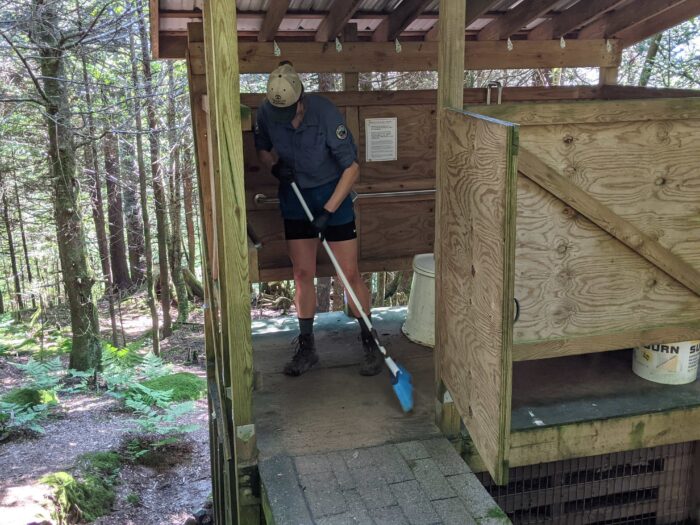
These composting privies are an improved method of processing human waste versus a pit latrine. With a composting privy, mulch is deposited into the bin under the toilet seat. The mulch promotes decomposition of human waste.
Maintaining the privies is a coordinated effort amongst Ridgerunners, the Park Service, the Appalachian Trail Conservancy, the Smoky Mountains Hiking Club, and other volunteer groups.
Here’s a behind-the-scenes look at what’s involved in maintaining the privies based on information and photos from Christine Hoyer – GSMNP Backcountry Management Specialist, Chloë de Camara – Trail Education Specialist for the Appalachian Trail Conservancy, Diane Petrilla – Smoky Mountains Hiking Club president, and Phyllis Henry – member of the SMHC Maintainers Committee.
Privy construction
The seven privies were constructed or rebuilt by the Smoky Mountains Hiking Club (SMHC).
The SMHC rebuilt the last privy in March 2019. The materials and SMHC volunteers were transported by helicopter to the site at Spence Field.
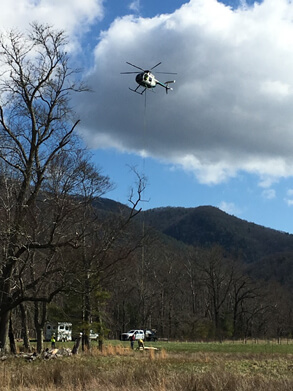
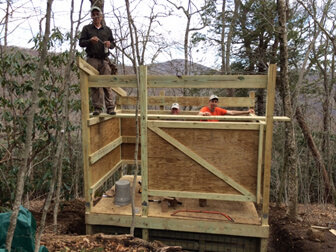
Role of Ridgerunners
Ridgerunners, seasonal employees funded by Friends of the Smokies, are the on-going contact with the A.T. They hike the Smokies section of the A.T. four days a week. They clean the privies and shelters, educate hikers about backcountry hiking and Leave No Trace principles, and serve as the Park’s eyes and ears on the trail.
One of the duties of the Ridgerunners is to clean the privies and monitor the level in the privy bin. When the bin is full, the Ridgerunners moves the toilet seat onto another bin.
The full bin is left to compost, which takes one to two years.
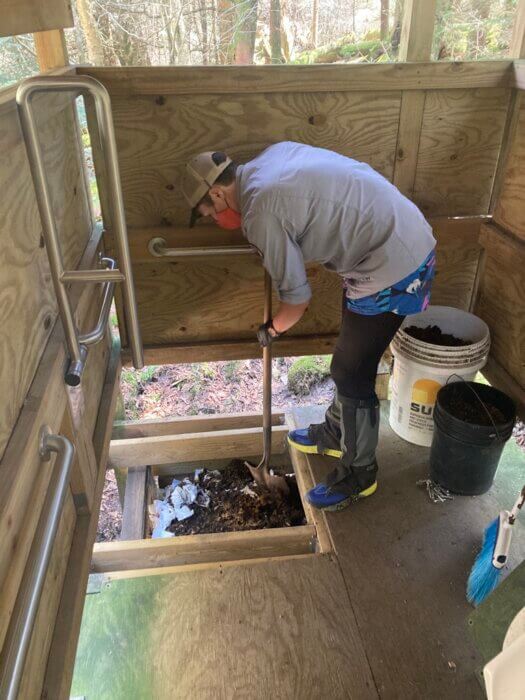
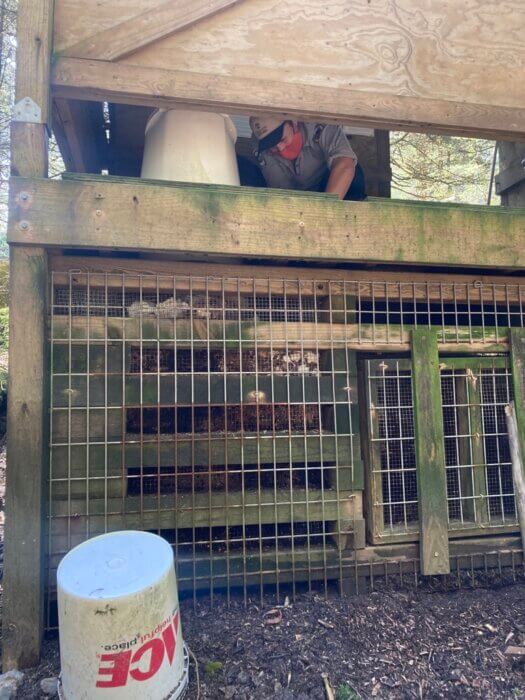
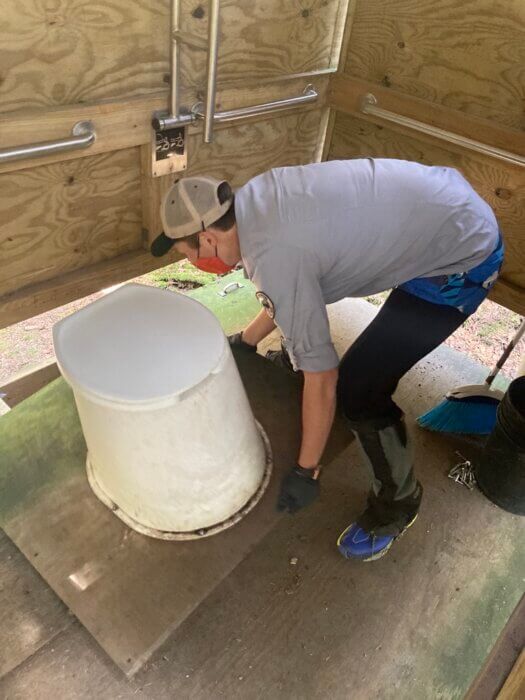
Composting privy content
When the contents in the bin are decomposed, the bin must be emptied. The work typically is done by Ridgerunners but sometimes by trained SMHC members.
To process the waste, haz-mat suits must be worn for safety. They rake through the composted matter and remove non-biodegradables — like baby wipes, sanitary products, clothing, and food packaging.
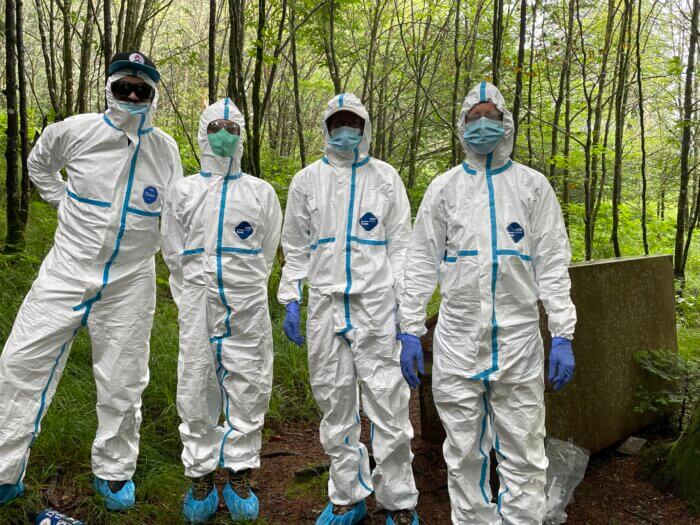
They place the trash into a trash bag to pack out. Then they disperse the composted waste onto the forest floor.
Ridgerunners also monitor the amount of mulch at each privy and work with GSMNP and the Smoky Mountains Hiking Club to have the mulch resupplied.
Smoky Mountains Hiking Club
The Smoky Mountains Hiking Club’s Maintainers Committee has 15 to 20 members who resupply mulch to the privies.
The Park Service creates mulch by using downed trees from within the Park to avoid introducing any non-native species or organisms. SMHC maintains a mulch “pile” and a large tent for bagging the mulch at a maintenance area in Elkmont.
The mulch is spread out under the tent and then bagged into 20-pound and 40-pound bags by Maintainers Jack Grant and Steve Hill. The 20-pound bags are for people to carry, and the 40-pound bags are for horses and mules to carry. The mulch is then transported to the privies by hikers, equestrian teams or helicopter.
SMHC president Diane Petrilla, who is in charge of Mulch Operations for the SMHC and Appalachian Trail Maintainers Committee, has recruited hiker volunteers to be “Mulch Mules.” Each team of Mulch Mules carries 100 to 200 pounds of mulch to the privies at the Icewater Springs Shelter (6-mile roundtrip), Mt. Collins Shelter (1.45-mile roundtrip) and Double Springs Shelter (6-mile roundtrip).
Hike-in mulch trips are held monthly from March through November. Each club member carries 20 to 40 pounds of mulch.
The photo at the top of this post features Mulch Mules preparing to backpack 200 pounds of mulch to Double Springs Shelter in June. The photo below shows Mulch Mules depositing mulch into the 500-pound storage bin for the Icewater Springs privy in August.
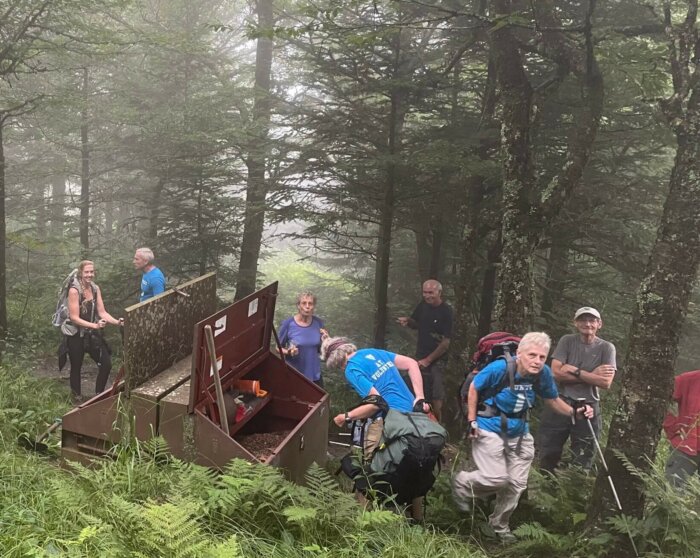
“We always welcome new volunteers,” said Mulch Operations coordinator Diane Petrilla. “Despite the arduousness of some of this work, we have a lot of fun.”
You can sign up to be a volunteer on the Smoky Mountains Hiking Club website.
Delivery of mulch by equestrian teams and helicopter
For the privies at the Cosby, Spence and Tri-Corner shelters, the SMHC Maintainers Committee makes arrangements with their equestrian partners regarding delivery.
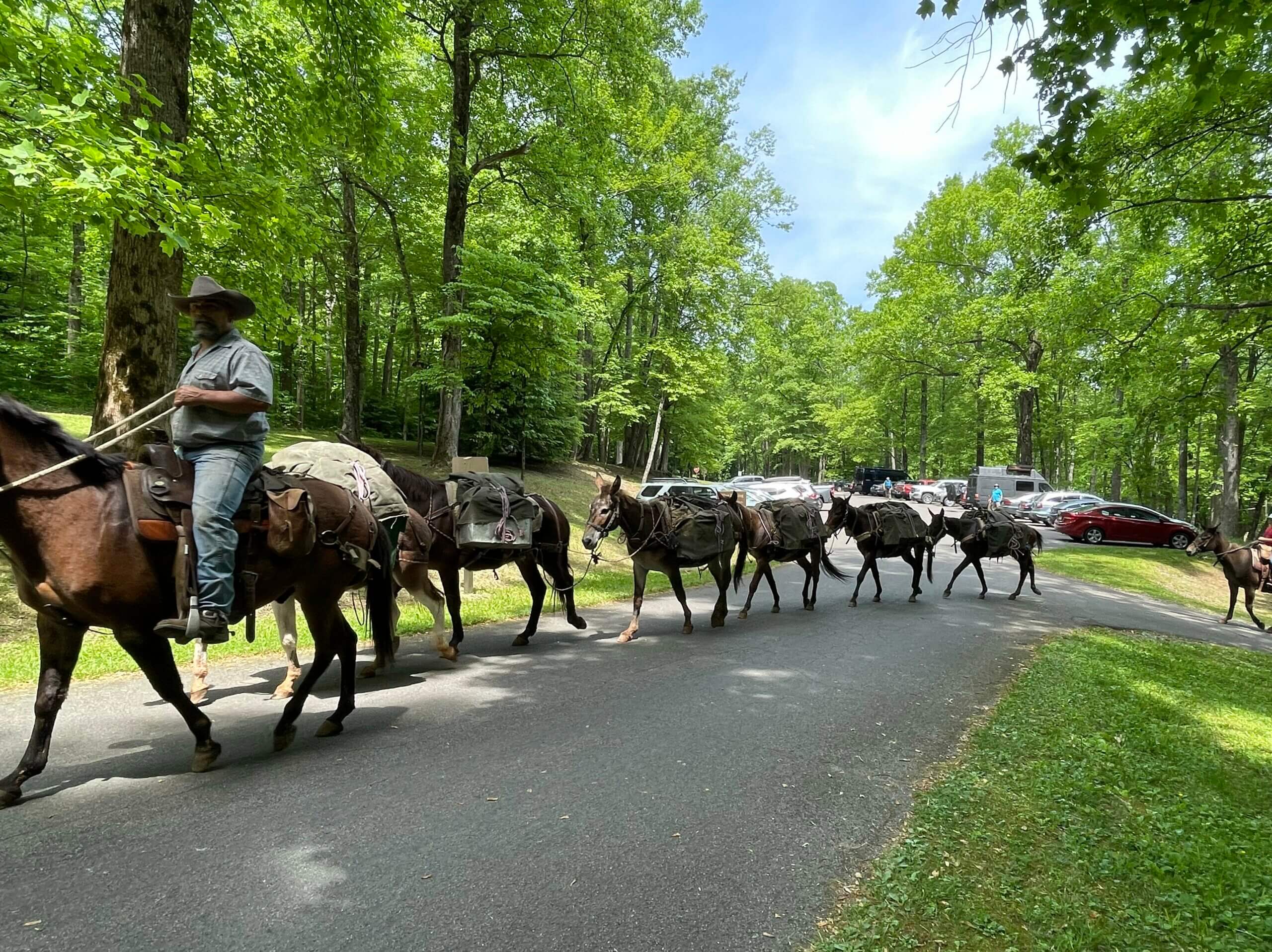
The Maintainers transport bagged mulch to the equestrian teams to carry to the shelters.
The equestrian teams need to make fewer resupply trips during the year because they can carry much more mulch, typically 500-1,000 pounds for each trip.
The SMHC equestrian partners are the Backcountry Horsemen of North Carolina, Mountain Mule Packer Ranch in North Carolina, and horseman Sam Tillery.
For even bigger mulch resupply efforts, the Park airlifts the mulch to the shelter site with a helicopter.
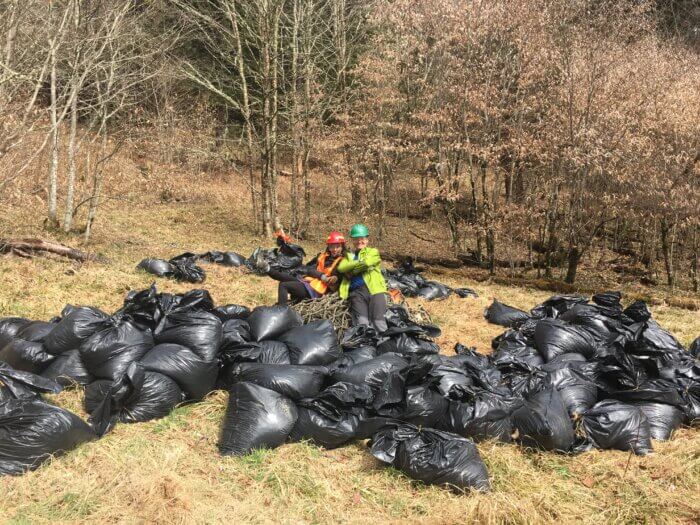
If you hike on the A.T., please keep in mind the incredible effort involved in maintaining the privies and do your part by not using the privy as a trash can. Please pack out your own trash.
You can help support the maintenance of the privies by making a donation to Friends of the Smokies.
******
For information on applying to be a Ridgerunner, check out the ATC careers page. Applications are accepted starting in September, with interviews starting in November.
For the latest information about safety requirements on the A.T. in GSMNP or for information about backcountry hiking, call the GSMNP Backcountry Office at 854-436-1297, daily from 8 a.m. to 5 p.m. (Eastern Time).
